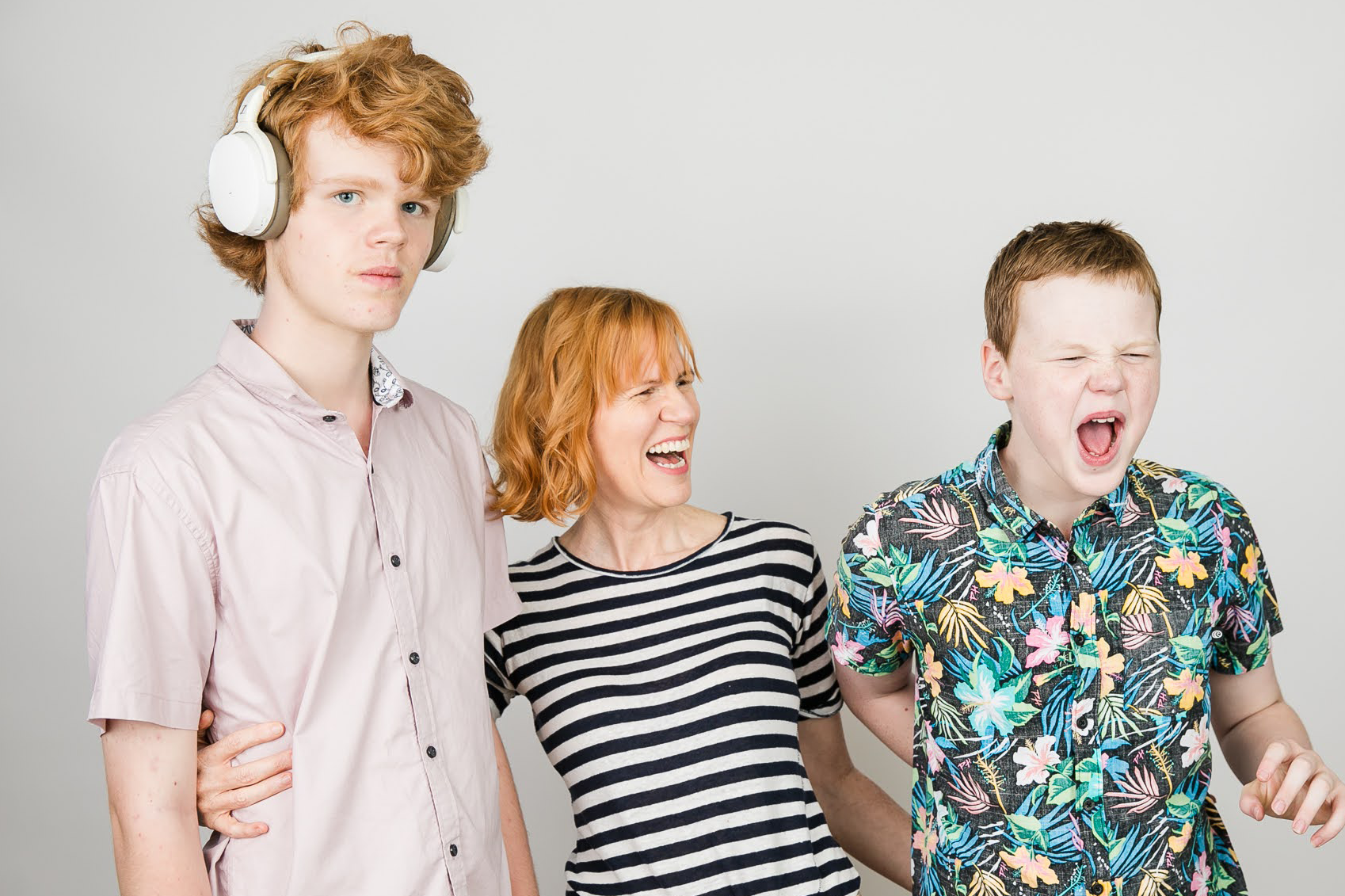Women's Health Week 2023

Women’s Health Week is an international initiative encouraging women and girls to prioritise their health and wellbeing to become the best version of themselves.
This can be challenging for all women, but it can be particularly difficult for a woman on the autism spectrum or a woman caring for someone who is autistic. In today's article, we'll explore holistic self-care strategies for autistic women and those who support them. We’ll also share where you can access autism-specific and/or carer-specific support if you’re struggling with your health:
- Physical health
- Mental/emotional health
- Social wellbeing
- Your next steps
Physical health
We all benefit from physical activity, regardless of our age or background. Unfortunately, women are more likely to face barriers to regular and effective exercise, which can cause health problems now and later in life.
For many autistic women, engaging in conventional forms of exercise can present barriers. The bustling environment of a gym with high-volume music, for instance, could potentially lead to sensory overload or emotional upheaval. Likewise, team sports might pose their own set of challenges, introducing an element of social overwhelm. It's essential to find alternatives that accommodate individual preferences and needs, fostering a comfortable and encouraging space for physical activity.
However, this might not be the case for all autistic individuals. Jess, a young woman with autism, told us:
'Team sports and physical exercise is important for me because it gives my mind a break while I focus on something different.'
This was a sentiment shared by Jess’ sister Rebecca, who said:
'Exercise is a great way to release stress. I find that after Jess plays a netball game or finishes a PT session, she always looks happier and energised.'
Here are some other forms of physical activity that you can try as an autistic woman or a woman who cares for autistic people:
Personal training
Personal training allows you to address individualised health and fitness goals with the support of a qualified professional. You might even be able to use your NDIS plan to fund your personal training sessions, such as those delivered by WeFlex.
Walking
It sounds simple, but it counts! Even just a few minutes of walking each day can improve both your physical and emotional health. Whether you walk alone or with someone else, take the same route or go somewhere different, it doesn’t matter– moving your body is the aim. And if you’re able to walk outside, that’s a bonus.
Trampolining
Physical exercise and emotional regulation all in the one activity! Trampolining has proven benefits across various areas of health, particularly for autistic people.
Staying motivated
It’s one thing to plan to exercise; it’s another to actually do it. Here are some tips for sticking with your exercise goals:
Start small
If you’re not currently exercising much (or at all), planning to run a marathon every day from tomorrow isn’t exactly realistic. The smaller your goal, the easier it is to build upon.
Keep yourself accountable
Arrange to go for a walk with a friend or acquaintance. Having a commitment with someone else not only deters last-minute cancellations but also provides a pillar of encouragement to help you steadily progress towards your goal.
Reward yourself!
Positive reinforcement works for everyone! Watch an episode of your favourite TV show after your first personal training session or organise to have coffee after going on a walk with someone. Recognising the ‘little wins’ is hugely encouraging.
Know your limits
Taking time for ourselves is essential. Given the higher susceptibility to burnout among autistic individuals and caregivers, recognising the right moment to step back is vital. This pause is not just for personal well-being, but it also promotes the health and happiness of those around us.
Mental/emotional wellbeing
Another huge aspect of our overall health is our mental and emotional wellbeing. For autistic women and carers of autistic people, maintaining good mental health can be difficult due to a lack of accessible support and a greater likelihood of experiencing prolonged stress.
Kathrine Peereboom spoke to us at AUStism Melbourne earlier in the year about the importance of prioritising your mental health. She reflects on the importance of resilience and forgiveness when looking after yourself:
'My health and wellness journey are always a work in progress. Sometimes my life allows me that all important me time and at other times it doesn’t. I’ve learned to release the guilt and embrace that there is always a new day or week to start over.'
We all experience periods of stress or low mood throughout our lives: this is inevitable. However, if mental health challenges linger for several weeks and start affecting daily life, it might be time to seek external help. Below, we outline nine signs that signal potential mental health challenges:

If you’ve been experiencing one or more of these for over two weeks, it might be time to seek external help. Contact your GP or reach out to one of these Australian-based mental health services.
If you or someone you know is experiencing a mental health crisis, please contact Lifeline on 13 11 14 or emergency services (000).
Social wellbeing
An often-overlooked element of our health is our social wellbeing, or relationships with others. While fostering relationships might be more challenging for autistic individuals and caregivers, the presence of supportive people in one's life is crucial. Rebecca reflects on the experience of her and her sister Jess:
'Maintaining healthy relationships with family and friends is crucial for everyone. As a woman with autism, Jess really values having people around her who can support her through her stresses, or simply chat to about her day.'
It can be difficult amongst the many other commitments and stressors in life to prioritise effectively. While maximising our time spent with others is important, we also need to ensure we’re enjoying adequate downtime. This is especially vital for autistic individuals. Without allocated time to unwind and recover from social interactions, they can rapidly experience burnout.
Mel Spencer OAM, an autistic woman, parent of autistic children and CEO of Different Journeys, shares her perspectives on prioritising your health and striking a balance between socialising and alone time:
'We all recognise the importance of learning to prioritise our own physical and emotional health needs. But often, this is put last, whilst we put everyone else first. And when someone says something to us to about doing something for ourselves, it’s just a reminder of what we are not doing. Reframing the way we prioritise this is how we can help affect change. We can model to our children and community needing, seeking and receiving help. If we prioritise this, we will hopefully have more time and energy to participate in family life, social and community activities, paid work and study opportunities.'
'Managing a social minefield as an autistic person can also be challenging and is dependent on so many factors. For me personally, I ensure that I have some downtime after I have had to be social. This downtime will be reading or watching TV, where I don’t have to think but my mind is occupied but doesn’t have to think or come up with solutions. My body is resting. No one is expecting anything from me when I am doing this. I recognise and give myself permission to do this.'
Your next steps
Although Women’s Health Week is about to come to an end, prioritising your health and wellbeing should be a priority all year round. Visit the links below for further information and support for both autistic people and those who love and care for them:






